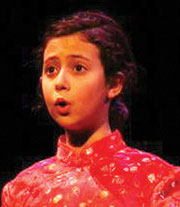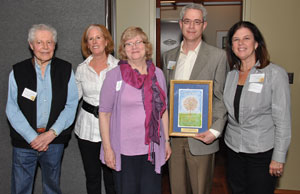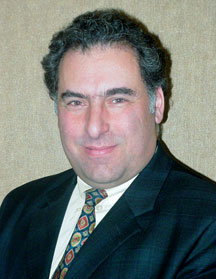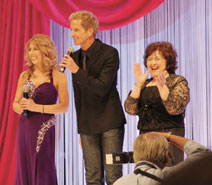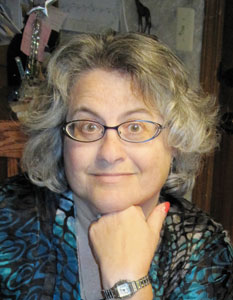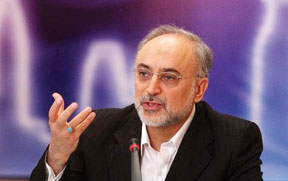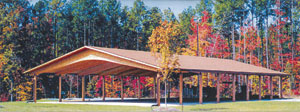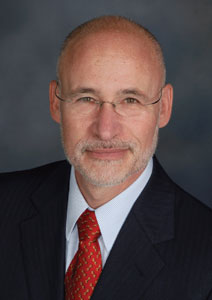Jewish Family Services’ holiday projects make a difference
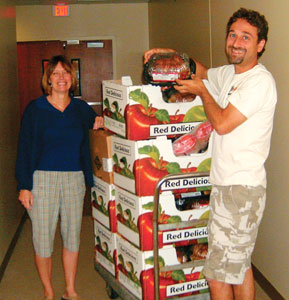
JFS staffers Dawn Herbet and Seroj Terian prepare to load up Passover holiday food packages.
Thanks to Jewish Family Services, this family is getting the help it needs. It gets financial assistance for immediate needs, and through the JFS Holiday Projects, this family will also receive traditional Jewish holiday foods and Chanukah presents to celebrate the holidays, as well as other items to help them with daily necessities.
As high unemployment and increasing living expenses continue, more people than ever are coming to JFS seeking help. Those who reach out for assistance go through a confidential financial and needs assessment with a JFS case manager. This process ensures that all clients receive the appropriate assistance. Case managers focus on meeting the immediate needs of an individual or family such as assisting with rent, utilities and medical costs. The JFS holiday projects focus on providing food and gifts to allow families the ability to celebrate according to Jewish tradition during their time of financial difficulty.
In addition to food and gift donations received through community drives, volunteer groups have also collected personal care items and cleaning supplies. These are daily essentials clients can’t afford; those “extras” like cleaning supplies for the home, cosmetics, shampoo and toothpaste, among other personal care supplies. Unfortunately, these are items most food pantries cannot provide. That’s where community volunteers play a vital role. This past Chanukah, Congregation Beth Shalom’s Sisterhood donated 58 personal care and cleaning supplies packages. This project was organized by Carol Yarmo, Beth Shalom Sisterhood’s vice president of community service. Her commitment to the long-term project ensured its’ success.
“We are very hopeful that the year-long drive that Beth Shalom’s Sisterhood is holding will continue to be this successful, as the need will always be there,” said Anna Feldman, JFS older adult case manager and holiday project coordinator. “Many of our life-crisis clients were extremely thankful for receiving such wonderful products.”
JFS volunteers also play an important role by distributing the holiday and personal care items. Currently, JFS is seeking volunteers to help with its Passover project. Volunteers are needed on Tuesday, April 3, to bag produce from 9 to 11a.m., and 1 to 3 p.m. to bag dry goods in the Jewish Community Campus Social Hall. Drivers are also needed for the upcoming Passover holiday to help with deliveries during the morning and afternoon of Wednesday, April 4, and Thursday, April 5, along with the morning of Friday, April 6.
Feldman said it’s important to remember why all this work is done — to make a difference in people’s lives. For example, an elderly Russian couple spent its life savings to immigrate to the United States. Because of their age and poor health, they weren’t able to start over and accumulate new savings upon their arrival. With their only income being a small Social Security stipend, after they pay the essentials of rent and utilities, there is little left. Thankfully, JFS donors, volunteers and staff, have stepped in to help.
“Our holiday assistance program not only provides this family with items they truly need, it also makes a huge difference in regard to their general well-being and happiness,” Feldman said. “What may seem like a small gift to those more fortunate means so much more to the individuals and families with which JFS works. It shows them that they are a part of the Jewish community and that the community truly cares about them. This is largely what gives them a sense of belonging in a foreign country.”
Those wishing to help through donations and/or by volunteering are asked to contact Feldman at JFS at 913-730-1452 or at afeldman@jfskc.org.
JFS steps out again to help families in need with Passover food drive
Families and individuals who struggle to make ends meet on a daily basis may find themselves having to skimp on those traditional special holiday food items.
Jewish Family Services hopes to remedy that situation with its annual Passover Food Drive. From now until March 26, JFS is collecting Passover food items that will be packaged up and delivered to those in need for the week-long holiday. Passover begins with the first Seder on Friday evening, April 6. JFS anticipates helping more than 150 families with Passover food packages.
Food items should be taken to the JFS office in the Jewish Community Campus during business hours or dropped off in the bin outside of the office. Items needed should be marked “kosher for Passover” and include: walnuts, gefilte fish, matzo, Shabbat candles and sweets (such as jelly candies, macaroons and cake or brownie mix).
Monetary donations are also needed to purchase items. Donations may be made by sending a check to Jewish Family Services Holiday Project, 5801 West 115th Street, Suite 103, Overland Park KS 66211, by calling (913) 327-8250 and providing your credit card number, or by going to the agency’s website at www.jfskc.org.
Volunteers are needed to help pack the Passover food packages along with delivering them. Deliveries will be made April 4-6.
If you know someone who is experiencing economic difficulty and could use some help this Passover, or, if you would like to volunteer for the Passover project, contact Anna Feldman at 913-730-1452 or at afeldman@jfskc.org. All information will be kept confidential.



 GOURMET KOSHER — Bitayavon, a new publication featuring gourmet kosher recipes and insightful articles, was recognized by the Magazine Innovation Center as one of 2011’s hottest magazine launches. Bitayavon, which features kosher recipes not only for Jewish holidays and Shabbos dinners but for every day, was chosen from a group of more than 800 new consumer titles published from October 2010 to September 2011. Launched in February 2011 as a 40-page local magazine in Brooklyn, N. Y., Bitayavon has since grown to a 76-page magazine sold worldwide in kosher specialty stores, supermarket chains, at newsstands and retail outlets such as Barnes & Noble.
GOURMET KOSHER — Bitayavon, a new publication featuring gourmet kosher recipes and insightful articles, was recognized by the Magazine Innovation Center as one of 2011’s hottest magazine launches. Bitayavon, which features kosher recipes not only for Jewish holidays and Shabbos dinners but for every day, was chosen from a group of more than 800 new consumer titles published from October 2010 to September 2011. Launched in February 2011 as a 40-page local magazine in Brooklyn, N. Y., Bitayavon has since grown to a 76-page magazine sold worldwide in kosher specialty stores, supermarket chains, at newsstands and retail outlets such as Barnes & Noble. 